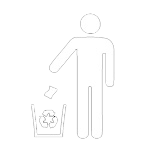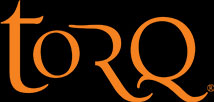In the first of our 3 articles on periodisation and peaking, we look at the Off Season or what Sports Scientists like to call the ‘Transitional Training Phase’.
Over the next few months, we will publish 3 articles. This one will look at the importance of the Off Season. The second article, published for our Christmas newsletter, will discuss how to build training blocks and cycle the loading (intensity, duration and frequency) of your training for optimal physical adaptation through the winter period. The last article in the series will be published for our February 2022 newsletter and will address how to peak for your chosen events in the spring, summer and autumn.
We often discuss how nutrition plays a role in assisting exercise intensity and duration, which in turn encourages physiological adaptation – getting fitter basically. On this occasion, we turn this logic on its head, putting out and out performance theory to one side to discuss how taking some time away from your dedicated sport will support your goals in the long term. Yes, the Off Season is all about rest and recuperation!
Keep Calm, But Don’t Carry On!
Many endurance athletes like road cyclists, mountain bikers and runners find that the end of their competitive season (usually around September/October) can leave them with a vast amount of free time. Planning, training and travelling to events makes for a busy life, so when all of this stops, what do you do? This could be seen as a great opportunity to get down to some serious training so that you can progress your fitness through the winter right? Wrong! Burn out, or more scientifically known as ‘Overtraining Syndrome’ is a very real issue and moving straight from an intense racing season into heavy training imposes a serious threat, not only to your physical health, but also your mental health. This ‘burn out’ won’t happen immediately – much more likely at a point in the season next year when performance really matters. It may feel like the right thing to do at the time, but further down the line you will pay the price and we help to explain why?

The diagram above illustrates how a continued trend of fatigue (no recovery time) can lead to many months of suffering from overtraining syndrome.
Interpretation of Fatigue
Fatigue is a familiar expression for endurance athletes. At TORQ, when discussing training with athletes, we often refer to short term fatigue as being developmental, because it represents an essential stimulus for our bodies to adapt.
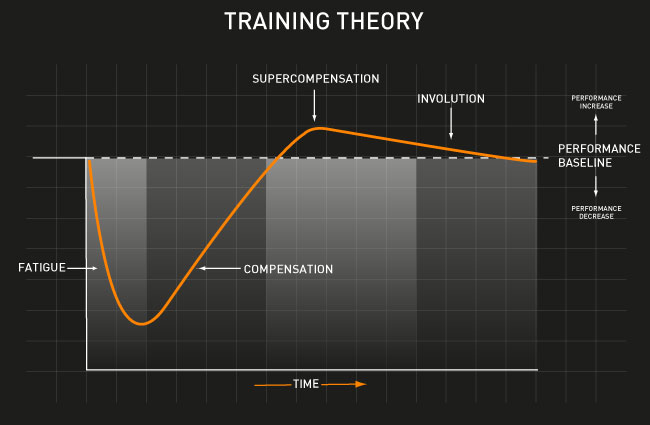
The diagram above demonstrates this point – fatigue stimulates a compensation response, leading to a peak in performance, otherwise known as ‘the training effect.’
This next diagram shows how a number of well-timed exercise sessions can take advantage of the fatigue stimulus in order to build fitness.
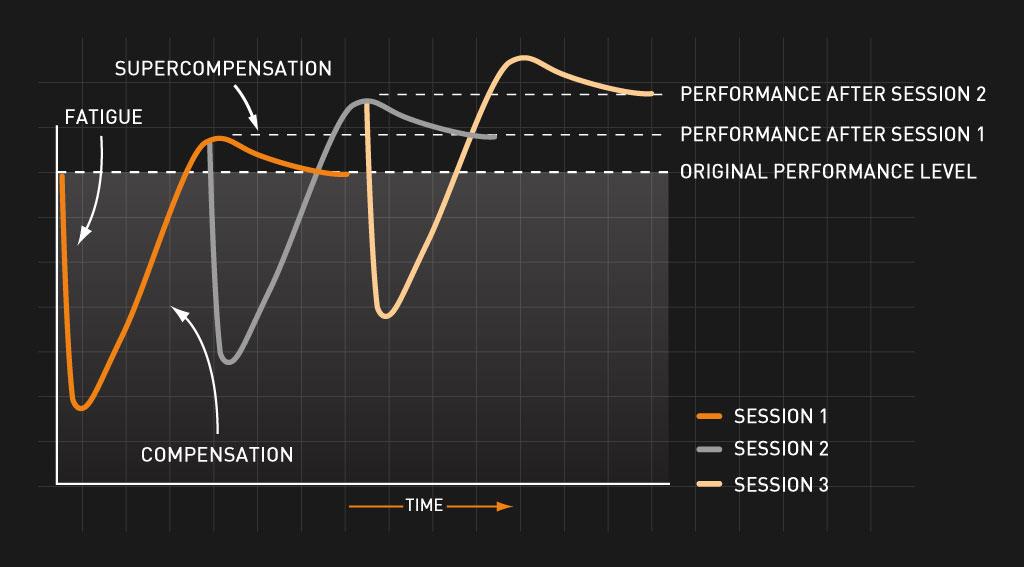
However, the term ‘fatigue’ can be used to describe much deeper feelings of exhaustion, which are a culmination of a season’s physical and psychological load on the body. Years of Fitness Consultancy experience at TORQ has taught us that fatigue can extend far beyond the physical and that psychological fatigue can play a much larger role in the overall tiredness of an athlete. When it comes to understanding psychological fatigue, it’s useful to look at the race season to establish the pressures someone might have been under:
- Race & training influenced anxiety
- Extensive travel periods
- Lack of social interaction due to training & racing commitments
- Time management stresses
- Commitment to strict nutritional strategies
- Financial recuperation
- Neglected life responsibilities & home chores
Take Some Time Out
As much as we would love to hold our best physical and psychological form for every day of the year, this series of 3 articles will explain how this can unfortunately never be the case. Your best performances will always be delivered at the cost of poorer performances at other times of the year and accepting this fact is key to understanding how vital the Off Season is as part of an overall periodised plan.
Taking 6-8 weeks out from formalised training, usually between September and December for most endurance sports in the UK, is what we usually advise the clients we consult with. If someone has had a particularly demanding season and they’re really fed up, we would suggest that they do absolutely nothing for at least a couple of weeks, or for as long as it takes until they feel like picking some physical activity up again. If your Off Season has been successful, you should be climbing the walls and desperate to get back to a formal training plan once it’s over – that’s the measure of its effectiveness.
Transitional Phase
The term ‘Transitional Phase’ suggests that the Off Season still plays a role within the annual plan rather than it being a free for all! As mentioned above, your first couple of weeks may need to be a free for all so that you can properly unwind, but it is still important to respect the goals ahead and understand that the actions you take in the transitional phase could have an impact on your ability to get back on the horse so to speak. The take home message would be, have fun, relax, but be sensible.

Our experience as coaches at TORQ has shown us that road bikers trying mountain biking and some perhaps other enthusiastic alcoholic nights out have resulted in long-lasting injuries, delaying the start of formal training and ultimately this can impact performances the following season. Similarly, we would encourage serious athletes to relax their dietary habits during the Off Season and to go out for meals and enjoy themselves, but at the same time we wouldn’t want to encourage mass weight gain! Losing a few kilos over the winter and spring would never be an issue, but don’t give yourself too much to do.
Try New Things & Develop New Skills
Perhaps a contradiction to the discussion in the previous section, but trying new things during the off season is a great way to occupy your free time. Here are some ideas that you might want to consider?
Other Sports: Avoiding the dangerous ones perhaps, how about going swimming if you’re a runner or biker for a bit of a change? If you’re a swimmer, you could try a bit of biking or running? Perhaps go down to the gym to do some cardio sessions to keep your physiology ticking over, yet don’t follow any formalised plan – just have a play and keep the overall intensity and duration on the low side. Go for walks and do stuff that you usually don’t get the chance to do.
Cooking: For any athlete or physically active person, nutrition has a signifiant role to play. Unless you are part of a professional, high budget team, you’re not going to have your own chef! Even if you are in a position where you kind of have your own chef (most likely a partner or parent/guardian), there are times where you will be required to support your own nutritional requirements. Also, personally taking an interest in the nutrients required to make a healthy, performance-rich meal will undoubtedly pay dividends when the training gets serious again.
Cooking is a skill, but it doesn’t have to be complicated. Just like your training, you can start with the basics and progress. Once you have a basic understanding of key food types such and carbohydrates, fats and proteins, and the understanding of how to build your meals to support your development, the only limitation is your imagination. In a previous article, we have examined protein in a detail and provided a list of high protein meals recipes for you to try. Take a look at them and see if there are any that take your fancy?
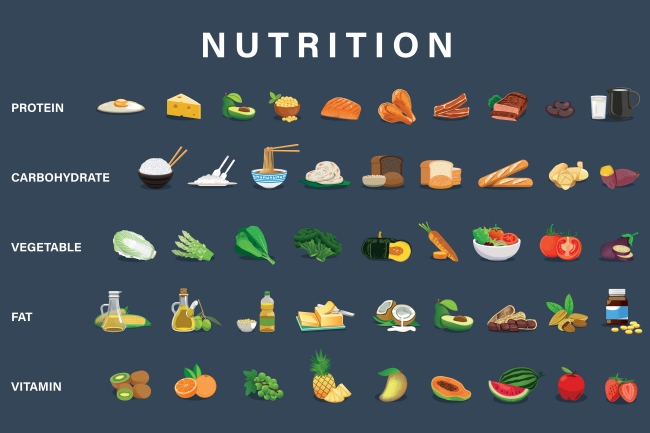
Meditation: We have already outlined how the intensity of the racing season can take its toll mentally. Without a positive mindset, it is almost impossible to expect to perform at your best. Let’s remember, it is the brain that tells us to get up in the morning to train before work, the brain that regulates motivation and the brain that sends the neurological message to tell the muscle to contract in a certain way to complete a task. If the brain is not firing correctly, it is easy to see that our ability to train and perform can be compromised. Athletes will often put the requirements of their sport and their team before themselves in an attempt to become the best they can be and learning to meditate is a skill that can be taken into the next season to provide periods of relaxation and clarity in an otherwise chaotic environment. Meditation can become a very powerful tool to help you understand yourself better but also help you to understand how you can achieve your goals quicker with less distraction.
There are a wealth of resources on the internet to give you insight into how to relax and meditate. You should find this YouTube video useful by NHS mental health charity Every Mind Matters.

Practice Skills: Practicing sport-specific skills is a brilliant way to stay engaged with the sport you love without actually doing it and inducing fatigue. Skills sessions are generally fun and do not require a significant amount of planning beyond understanding the skill you want to improve. For example, in road cycling, the skills an athlete may want to develop could be a track stand to improve balance, taking a bottle from support staff to maximise feed zone efficiency and cornering ability. For a mountain biker, these skills could involve line choices, balance drills like manuals, track stands, braking techniques and understanding suspension set ups for different course types. For runners, these skills could involve balance and stability drills, cadence and stride length drills or even simply race route planning.
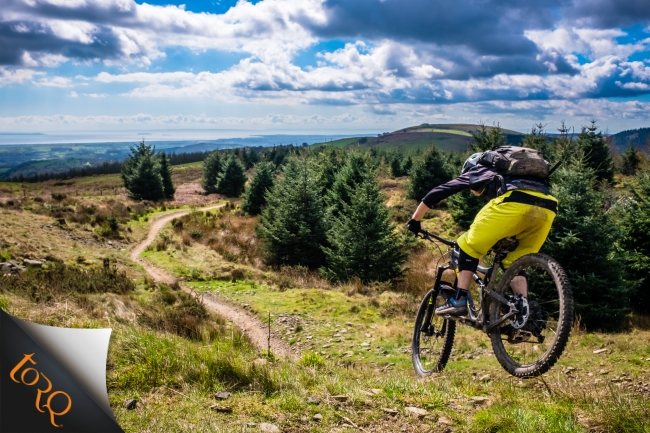
Organisation: Being time-strapped can add significant stress to your life, especially when you throw a racing season in for good measure. Feeling like you are in control of your list of jobs, whether sport related or otherwise, will help you to feel more secure and confident. Are you meticulously organised when it comes to preparing for your sport, like preparing your kit bags for a weekend of racing? If things can be improved, use the Off Season to get some systems in place, so that whilst all of your competitors are running around in a panic getting their equipment together, you’re calmly ticking off items from a list you know to be comprehensive. Remove uncertainty and you’ll remove stress. There’s no harm in rolling this level of organisation out into other aspects of your life too, because the less faff you have to deal with, the more chill time you’ll have and the better your recovery will be. With better recovery comes stronger performances.
Review Your Season
A period of self-reflection is possibly one of the most important things you can complete within the Off Season. This doesn’t need to happen all at once and you should use the time you have away from formalised training and racing to think about the emotional highs and lows of the season and come to honest and clear conclusions as to what worked and what didn’t. Self-reflection means nothing without learning and evolving. After any period of self-reflection, write down or make a mental note of the areas you are proud of and the areas you feel you could change. Don’t be concerned if the answers don’t come to you straight away, you may find that the answers come to you when you are most relaxed.

Plan For Next Year
The great thing about a period of reflection is that you can start to put plans in place to address weaknesses and chinks in your armour. If you have a coach, this is the time to sit down with him or her to discuss how your approach might be different for the forthcoming year. If you don’t have a coach, consider how your points of self-reflection can be built into a formalised plan moving forward. In the Part 2 of Periodisation & Peaking, we talk to you about how to put together such a plan.
Summary
Unfortunately, the off season or transition phase can’t last forever, but 6–8 weeks of doing things differently and getting away from the formality of training and racing is vitally important. Yes, you’re going to lose some form, but it doesn’t matter, because you’re not going to need it again for months and you should be comfortable with that. You will know if you have completed your Off Season properly, as you will be itching to get back to business – if not, perhaps you need to take a bit more time off?
If you have any questions about this article or any other subject, please don’t hesitate in contacting us at enquiries@torqfitness.co.uk or phone 0344 332 0852. Please note that we also have a Fitness Consultancy if you would like to discuss any of the areas of this article in deeper detail. Click HERE for further information on our services.




